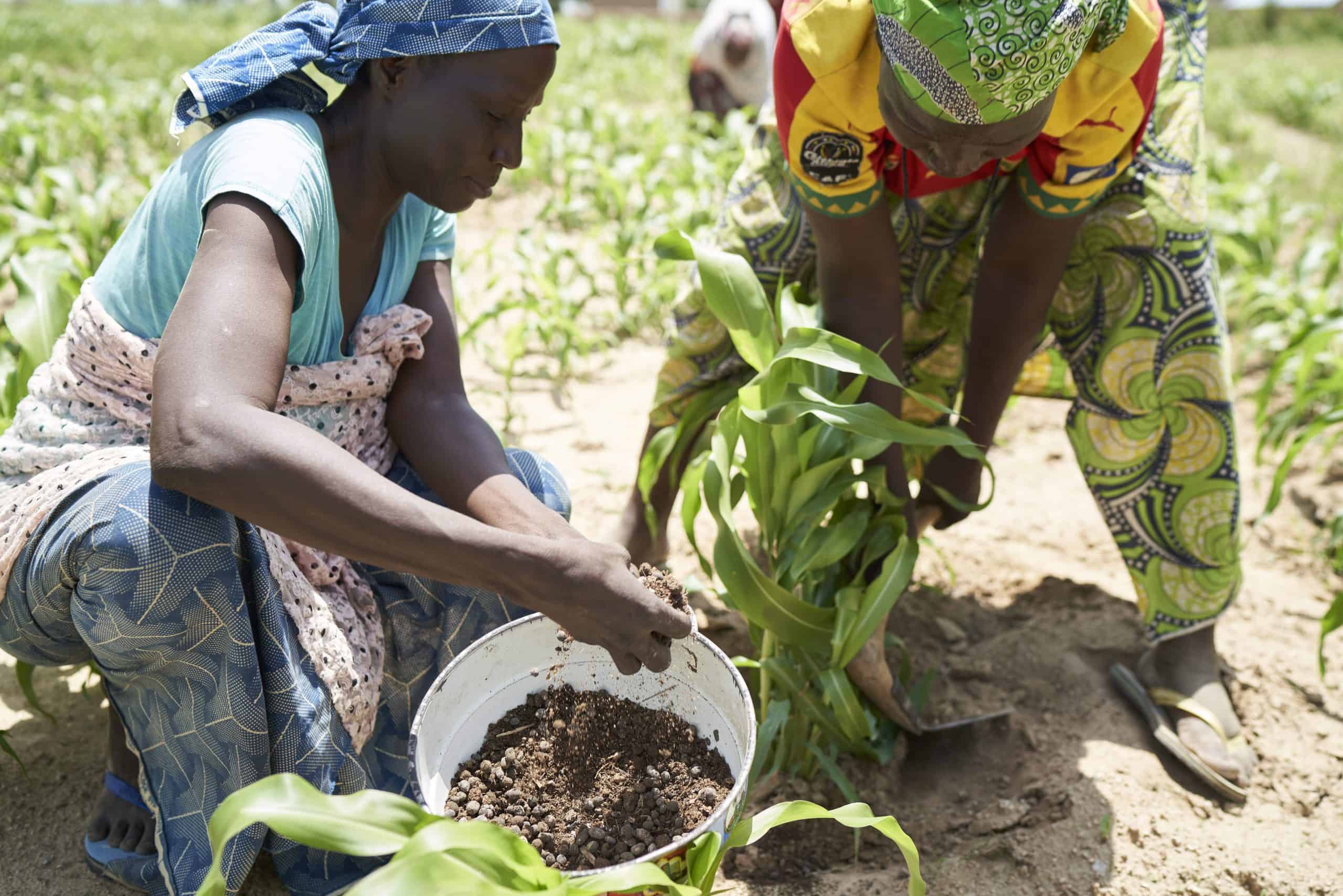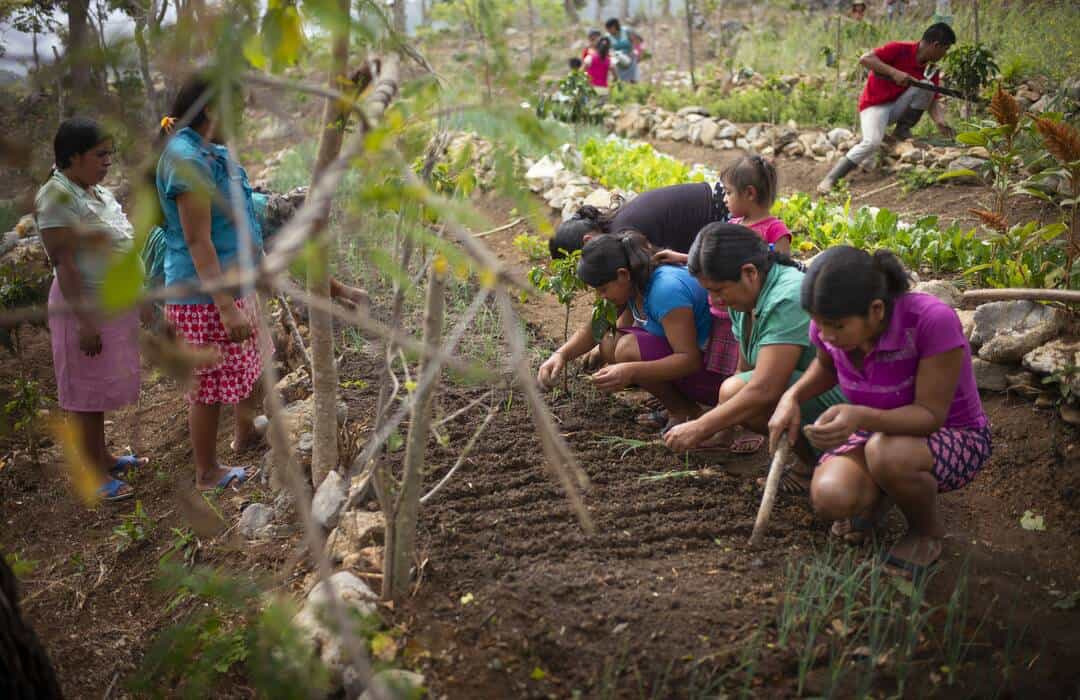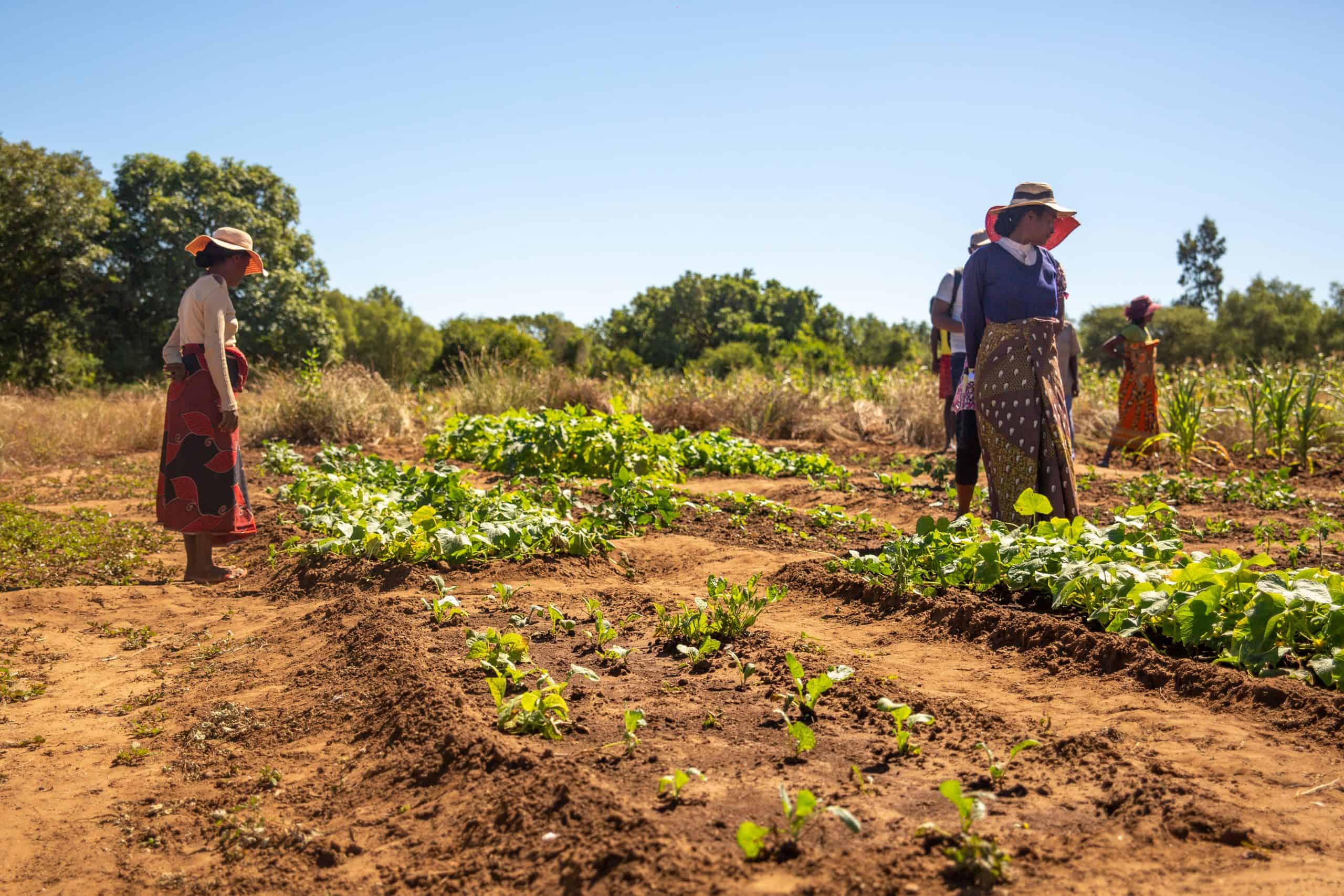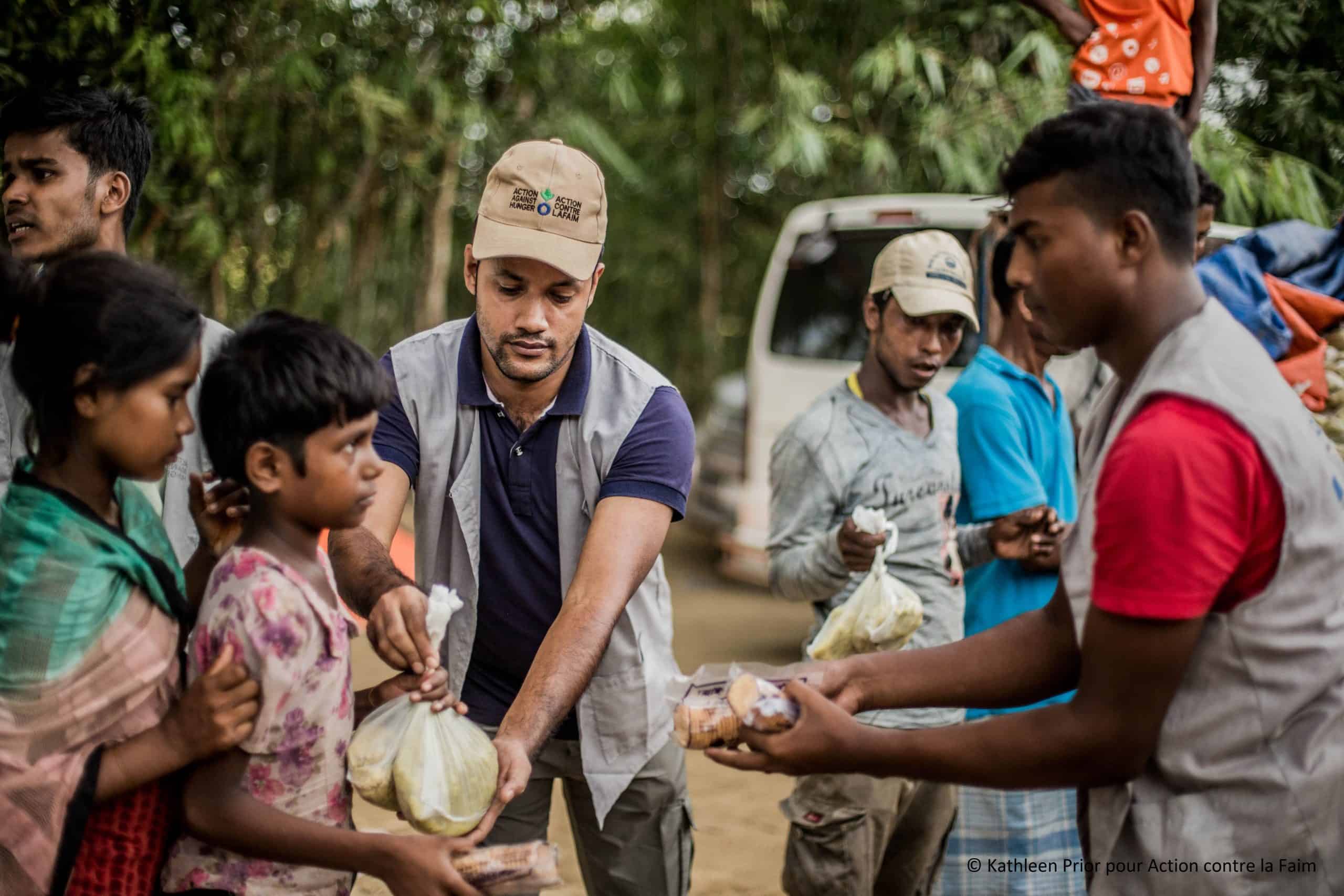Action Against Hunger action for climate change
Almost 60% of the population in Zambia lives below the poverty line. The country has high levels of inequality, with many people struggling to feed themselves and their families every day. Zambia is experiencing one of the worst food security crises in the world, with 35% of children under the age of five suffering from chronic malnutrition. Mothers who realise that their child is at risk of dying from undernourishment often have to walk several kilometres to the nearest health centre.
Action Against Hunger runs treatment centres in several African countries. Our staff work hard every day to ensure that all the children recover. These health centres are essential, but no child should have to deal with such dangerous levels of undernourishment.
We wanted to work closely with communities in Zambia to strengthen their resilience and ensure their sustainability. We knew that if we helped them to identify their nutrition priorities and strengthen their food security, they would be in a better position to invest in finding community-wide solutions. And so Seeds of Hope came into being.
The main aim of Seeds of Hope is to prevent hunger caused by climate change. Temperatures are rising worldwide, and several African countries are facing severe climate-related shocks ranging from flash floods to multi-year droughts. The programme has been designed to rise to these challenges over the next ten years and give communities the tools they need to thrive.
We base our approach on adapting to the climate, conservation agriculture and innovative, climate-smart local networks to prevent hunger.
Read the full article: click HERE

Action Against Hunger action for climate change
In view of the many discussions and initiatives underway following the outbreak of war in Ukraine, and in particular those relating to an emergency plan for food security (Food and resilience mission), Action Against Hunger (AAH) would like to share its analysis of the impacts already in progress in the areas in which it operates and the elements that need to be taken into account in these international initiatives.
Genuine support and positive short- and long-term impacts for populations threatened by worsening food insecurity must be the primary objective of any response. These initiatives must include means of strengthening certain existing mechanisms and bring about an in-depth transformation of our food systems to support and relieve people suffering from hunger.
Access the report: click HERE
Action Against Hunger action for climate change
Food security exists when all people, at all times, have the physical, social and economic means to access sufficient, safe and nutritious food in order to meet their dietary needs and food preferences for an active and healthy life.
Food security is based on four main pillars: availability, access, use and stability. “Availability” refers to the availability of food in sufficient quantity and of appropriate quality, supplied by domestic production or imports (including food aid). “Access” refers to physical and economic access, whilst “Use” includes water quality, hygiene, nutritional quality, as well as the distribution of food within the household at mealtimes; and finally “Stability ” is achieved when the other three dimensions are sustained over time.
There are still 735 million people in the world living with food insecurity.
This figure has been rising steadily over recent years. Worldwide, 148 million children under the age of 5 suffer from stunted growth¹. The fight against undernourishment must be a political priority if we hope to put an end to this scourge.
Conflict and security problems are a direct cause of food insecurity. Conflicts can lead to the destruction of agricultural land and livestock, which play a key role in people’s means of production and ability to support themselves. As such, hunger is used as a weapon of war. This is a practice that is denounced by NGOs such as Action Against Hunger and condemned by the UN Security Council through Resolution 2417 adopted in 2018.
Conflicts also cause massive population displacements. These security problems force people to abandon their land, their livestock and often their sources of income and food, leaving them in a very precarious situation with no financial or food resources.
To read the full article : click HERE

Action Against Hunger action for climate change
Nearly 735 million people are still suffering from hunger today. 148 million children under the age of five suffer from stunted growth, and 45 million from acute malnutrition.
While malnutrition affects more than half the population, climate change is an additional threat to the food security of the most vulnerable populations. Droughts, floods and extreme weather events have a direct impact on communities.
However, effective treatments do exist. Action Against Hunger provides women and children with health and nutrition services in order to break the intergenerational vicious circle of undernourishment.
Action Against Hunger pays focuses on training local workers, in order to ensure the autonomy of the missions in the caring and treating malnutrition at a national level. We also take into account the quality and nature of the care provided to children within the family and the community. Our programmes therefore include strengthening childcare practices and the parent-child relationship, thereby bringing about the child’s physical and mental fulfilment. highest in Latin America and one of the highest in the world.
Understanding the root causes of each crisis leading to malnutrition is vital when designing and implementing an effective feeding programme. Action Against Hunger draws on the full range of its technical expertise in nutrition and health, food security, and drinking water and sanitation, to analyse each situation as effectively as possible and help patients return to good health.
To read the full article click HERE

Action Against Hunger action for climate change
In just a few months, heavy rains have claimed many lives and damaged and destroyed public infrastructure. Nearly 2.3 million houses have been destroyed, mainly in the provinces of Sindh and Baluchistan.
In Baluchistan, a province in south-west Pakistan bordering Afghanistan, the rate of food insecurity was already very high, with 41% of the population in a crisis and emergency situation (IPC).
There are a number of reasons to explain this figure, including heat waves in the first half of 2022, followed by heavy monsoon rains and flooding from July onwards, which led to disastrous harvests and major livestock losses. This disaster has also heightened concerns about food security, as the impact of the floods on agriculture has been particularly severe (OCHA).
Furthermore, since December, residents have been experiencing harsh winter conditions, some of them living without shelter and with just the bare minimum to clothe or feed themselves.
With 64% of the population live in rural areas and earn their living from farming, the country will have to restore economic balance. Long-term reconstruction is therefore a crucial issue for the country, but those affected by the floods must also be able to benefit from immediate help to survive and find alternative, sustainable means of subsistence. This help should include reinforcing existing irrigation and drainage infrastructure, building new flood-resistant housing, and supporting small farmers to develop more innovative, climate-resilient practices to improve production.
To read the full article: Click HERE
